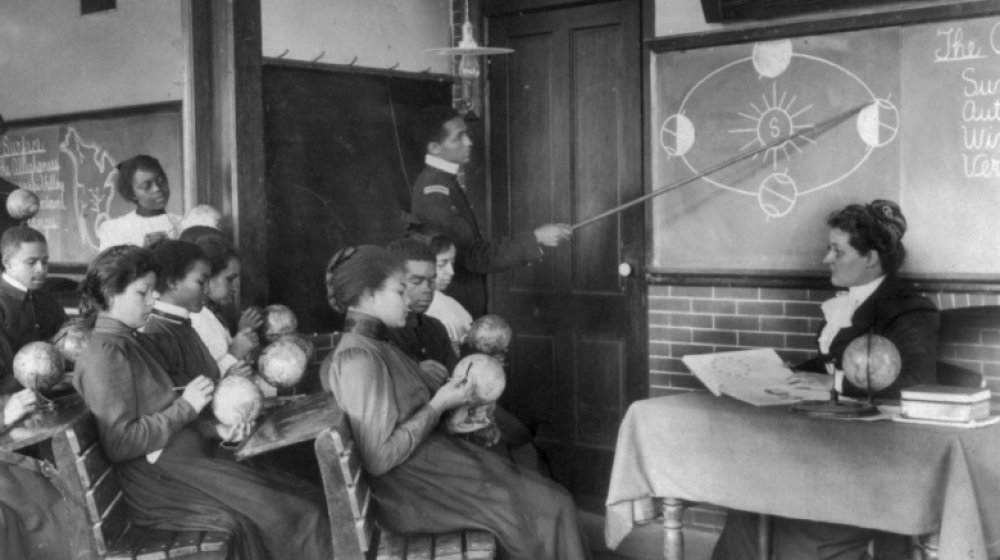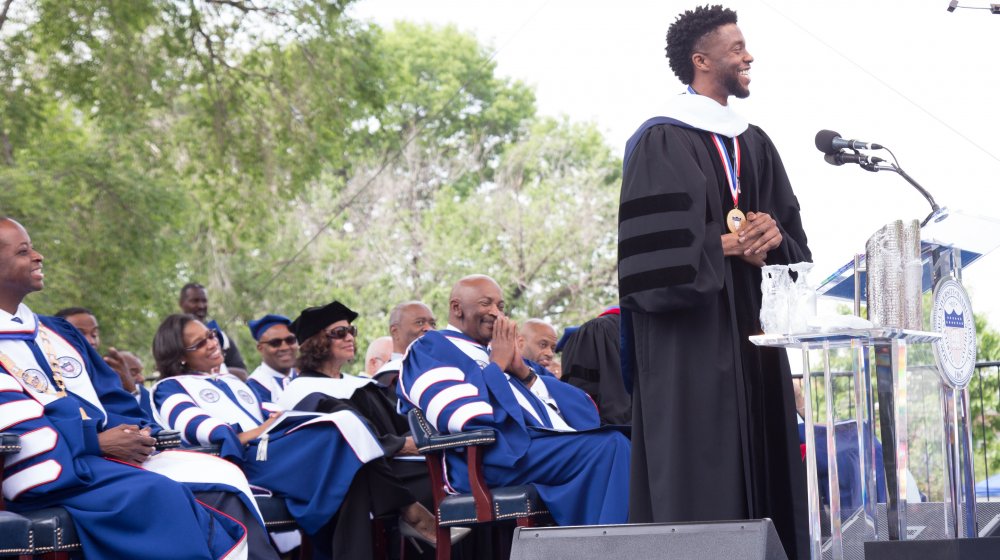The Untold Truth Of Historically Black Colleges And Universities
Historically Black Colleges and Universities, also known as HBCUs, are seen as one of the significant accomplishments in African American history within the United States. According to the U.S. Department of Education, there are currently 107 HBCUs in the U.S. with more than 228,000 enrolled students. Popular and accredited HBCUs include Howard University in Washington, D.C., Spelman College in Atlanta, Xavier University of Louisiana in New Orleans, and North Carolina A&T State University in Greensboro.
The Higher Education Act of 1965 established HBCUs and defines them as, "...any historically black college or university that was established prior to 1964, whose principal mission was, and is, the education of black Americans, and that is accredited by a nationally recognized accrediting agency or association determined by the Secretary [of Education]..."
These colleges continue to serve and educate African American students today, but their longstanding history in the U.S. is essential to fully understand their importance.
Higher education for African Americans
The first HBCU was Shaw University, founded in Raleigh, North Carolina, in 1865. It was the first Black college organized after the Civil War, since before that, there was no structured system in higher education for Black students. The first HBCUs were predominantly funded through the efforts of churches before the Second Morrill Act of 1890, according to the National Museum of African American History and Culture. This act required all states—even formerly confederate ones—to provide land-grants to build educational institutions for Black students since back then, they were not allowed at white schools.
Early on, students at HBCUs were looking to be trained as teachers or preachers. Schools back then were not the brick-built universities with vast green campuses seen today, but instead consisted of classes in people's homes, church basements, and in old schoolhouses, according to Affordable Colleges Online. Prominent figures and leaders in the Black community who attended an HBCU include Ida B. Wells, Booker T. Washington, W.E.B. Du Bois, and Martin Luther King Jr. Even though some of these HBCUs now allow people of all races to enroll, the importance of enabling African Americans to get the education they deserve remains important in their overall mission.
As said by Elwood L. Robinson, chancellor of Winston-Salem State University, "HBCUs are probably even more important today than ever before. These institutions were created to allow recently emancipated slaves an opportunity to pursue higher education. While times have changed, HBCUs remain relevant."

